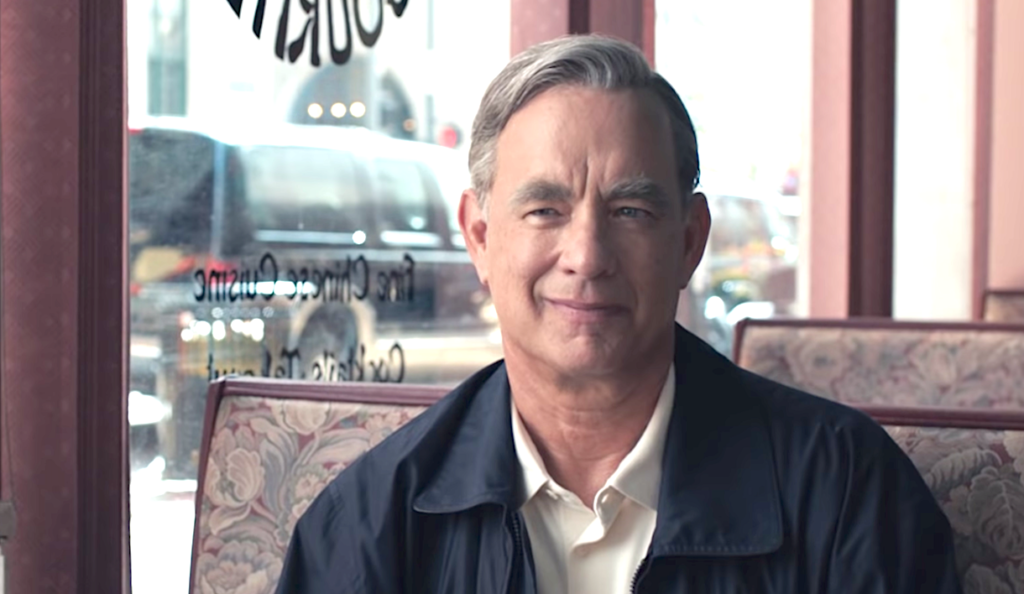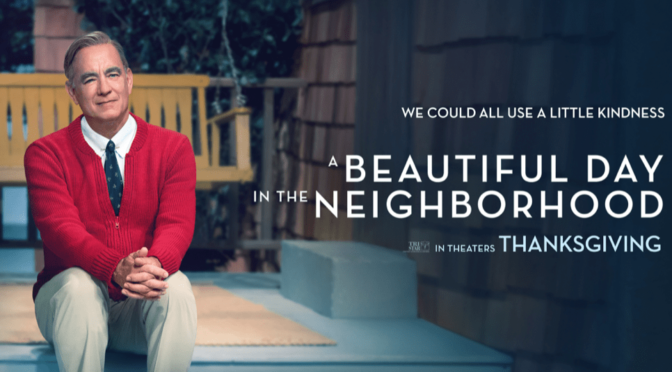A hotshot journalist equally praised and reviled for his writing, Lloyd Vogel (Matthew Rhys; The Americans), is forced to do a fluff piece on a hero. Against his wishes, he is assigned to interview and profile Mr. Rogers (Tom Hanks; Forrest Gump), but soon realizes that Fred Rogers is no ordinary interview subject.
The most important question the film has to address is “Why does this need to exist?”. Last year Won’t You Be My Neighbor? released to incredible reviews and became the highest gross documentary biopic in the US. That film covered Rogers’s beliefs, motivations, methods, and featured many interviews with him and his closest collaborators. It was a profound look at the man and the ideas he lived by and communicated that didn’t ask for a continuation or rehash. The first instinct would be to label this new film as a quick cash-in on the affection towards Rogers shown by the documentary’s success. In some ways, this may be true, but director Marielle Heller (Can You Ever Forgive Me?) and screenwriters Micah Fitzerman-Blue and Noah Harpster have taken an alternative route.
This is not a biopic of Mr. Rogers. It is about Lloyd’s deeply held hatred of his father, the effects it has had on his life, and how his viewpoints are changed by Mr. Rogers’s beliefs. Rhys plays Lloyd as an unfavorable stereotype of a reporter, overworked, somewhat sensationalist, and always bitter. He overacts occasionally with his crooked expressions, but Rhys does well in showing Lloyd to be a man frustrated and angry with life itself.

Hanks, as Rogers, is an adequate but imperfect fit. There is no denying that Hanks simply does not look anything like Mr. Rogers. To compensate, Hanks uses the same strange expression throughout the film. He is permanently squinting, despite the fact the Rogers doesn’t appear that way in interviews or on his show. It can be distracting but Hanks does his best. He speaks with a more folksy delivery, like an elderly person talking to their grandchildren, than Rogers did which can make him appear almost out of touch than rather than deliberate in his method of communication. Yet, his values are clear and his obliviousness to Lloyd’s reporting needs show how his presence could change someone, even someone as hardened as Lloyd. Hanks doesn’t have the needed physicality but he works as a vehicle for Rogers’s message.
The film is most subversive in how it compares Lloyd to Rogers. Heller doesn’t just contrast their personalities, she emphasizes how similar they may actually be. Rogers gives Lloyd advice on coping with his emotional problems, but through his actions it becomes apparent that Rogers himself is likely dealing with his own issues as he seems to be following the same advice. This a striking assertion and prevents Rogers from becoming a saint-like figure. That his kindness is an achievable goal is the film’s true, and most important, message. It still feels unnecessary given the existence of the documentary, but A Beautiful Day in the Neighborhood offers a different perspective on the philosophy and impact of Mr. Rogers.

3/5 stars.
